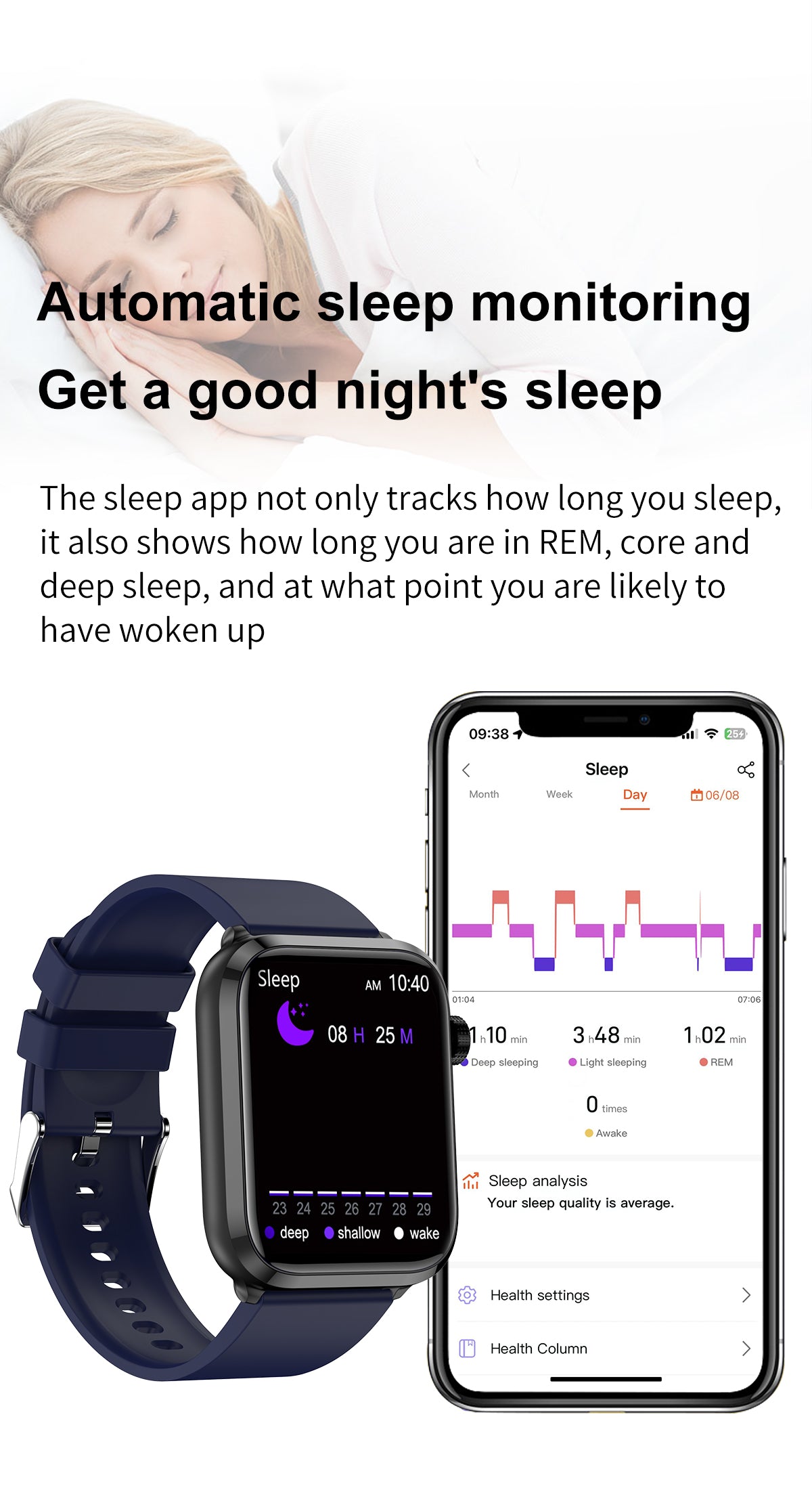Sleep Tracker
For individuals living with Attention Deficit Hyperactivity Disorder (ADHD), the quest for a restful night's sleep can be an ongoing challenge. The unique neurobiological characteristics of ADHD can significantly impact sleep patterns, making it difficult for those affected to enjoy the rejuvenating sleep they deserve. In this blog, we delve into the reasons why sleep doesn't come easy to people with ADHD and explore effective strategies to promote better sleep quality.
-
Hyperactivity and Impulsivity: The hyperactivity and impulsivity associated with ADHD can create a constant state of alertness, making it challenging to wind down at bedtime. Racing thoughts and a heightened level of energy can interfere with the transition from wakefulness to sleep.
-
Overactive Mind: Individuals with ADHD often experience an overactive mind, characterized by racing thoughts and a difficulty in quieting the mental chatter. This cognitive hyperactivity can persist into the night, hindering the ability to relax and fall asleep.
-
Delayed Sleep Phase Syndrome: Many people with ADHD may experience a delayed sleep phase, where their natural circadian rhythm is shifted, making it challenging to fall asleep at conventional bedtime hours. This can lead to a struggle with maintaining a consistent sleep schedule.
-
Sensory Sensitivities: Sensory sensitivities are common in individuals with ADHD, and environmental factors like noise, light, or discomfort from bedding can contribute to sleep disturbances. Creating a sleep-conducive environment becomes crucial.
What to Do About It:
-
Establish a Consistent Routine: Stick to a regular sleep schedule by going to bed and waking up at the same time each day. Consistency helps regulate the circadian rhythm, making it easier to fall asleep.
-
Create a Relaxing Bedtime Ritual: Develop a calming bedtime routine to signal to the body that it's time to wind down. This could include activities like reading, gentle stretching, or listening to soothing music.
-
Limit Stimulants Before Bed: Reduce or eliminate stimulants like caffeine and electronic device usage at least an hour before bedtime. These can exacerbate hyperactivity and make it harder to transition into a restful state.
-
Optimize Sleep Environment: Address sensory sensitivities by creating a comfortable and quiet sleep environment. Consider blackout curtains, white noise machines, or comfortable bedding to enhance sleep quality.
-
Explore Cognitive Behavioral Therapy for Insomnia (CBT-I): CBT-I is a therapeutic approach designed to improve sleep by addressing specific thoughts and behaviors that may be hindering restful sleep. It has shown effectiveness in individuals with ADHD.
-
Consult with Healthcare Professionals: If sleep difficulties persist, it's essential to consult with healthcare professionals. They can provide personalized strategies, medication options, or additional resources to support better sleep.
Understanding the unique challenges that individuals with ADHD face in achieving restful sleep is the first step toward finding effective solutions. By implementing consistent routines, creating a conducive sleep environment, and exploring therapeutic interventions, those with ADHD can work towards reclaiming peaceful and rejuvenating nights. Quality sleep is a vital component of overall well-being, and with targeted strategies, it becomes a more attainable goal for individuals living with ADHD.
Explore the BP Doctor smartwatch, whose sleep monitoring function can help you better understand your sleep status.










